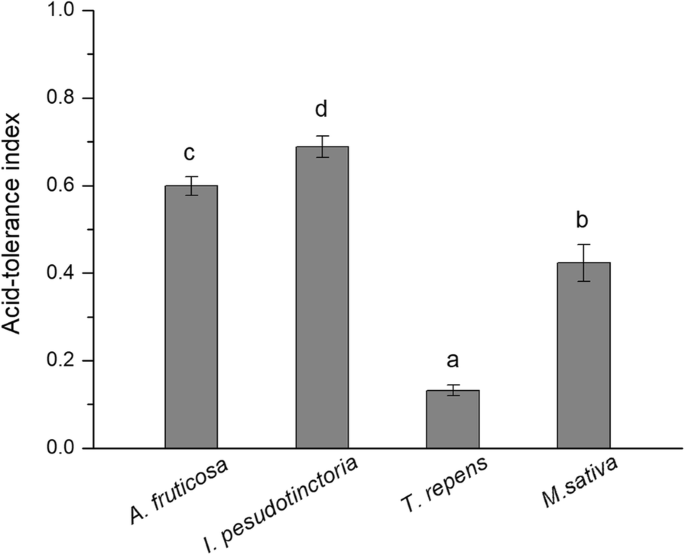Lsd Tolerance | Lsd, also known as lysergic acid diethylamide, is derived from the fungus ergot, which grows on rye as well as other types of grains. In fact, it develops very quickly and profoundly. I will even be discussing the tolerance of lsd and how often it should be taken. Lsd is not considered a physically addictive drug, but continued use will lead to tolerance. Those who take it regularly should learn more about tolerance and the potential for dependence.
When small doses are taken, it can produce mild changes in perception, mood and thought. Lsd, also known as lysergic acid diethylamide, is derived from the fungus ergot, which grows on rye as well as other types of grains. Based on u/admiralacid's psychedelic calculator. Those who take it regularly should learn more about tolerance and the potential for dependence. It was based on several users' subjective experiences.

Lysergic acid diethylamide (lsd), also known colloquially as acid, is a hallucinogenic drug. For example, if a user takes lsd for just three or four days in a row, the lsd no longer produces the same desired effects. Tolerance refers to the body's natural resistance to a drug's effects. Lysergic acid diethylamide (lsd) is an illegal drug first made by a swiss drug manufacturer in 1938. Not only for a first timer but for perhaps any of you. In fact, it develops very quickly and profoundly. While the drug does not cause physical cravings, individuals who take it often associate it with people and. Lsd is an illegal psychedelic substance at the time of writing. Lsd is not considered a physically addictive drug, but continued use will lead to tolerance. Lsd tolerance applies to both the psychological as well as some of the somatic (physical) effects of acid. Lsd dependence is typically psychological, not physical. Compounds like lsd push the balance of receptor activity outside normal parameters. Education, love, mindfulness, acceptance and harm reduction are our main goals here.
Not only for a first timer but for perhaps any of you. When people become tolerant to a drug, they need to take more. Lsd had a major impact in the areas of scientific research and psychiatry upon its release — within 15. Lysergic acid diethylamide (lsd), also known colloquially as acid, is a hallucinogenic drug. Lsd tolerance effects serotonin levels.

When small doses are taken, it can produce mild changes in perception, mood and thought. Lsd is not considered a physically addictive drug, but continued use will lead to tolerance. Lsd dependence is typically psychological, not physical. Tolerance to lsd starts to develop immediately after multiple consecutive uses. Lsd is a hallucinogenic most commonly taken off blotter papers which are small squares of paper that. Effects typically include altered thoughts, feelings, and awareness of one's surroundings. Lsd tolerance effects serotonin levels. Lsd is an illegal psychedelic substance at the time of writing. In fact, it develops very quickly and profoundly. For example, if a user takes lsd for just three or four days in a row, the lsd no longer produces the same desired effects. Those who take it regularly should learn more about tolerance and the potential for dependence. When larger doses are taken, it may produce visual. Lsd, also known as lysergic acid diethylamide, is derived from the fungus ergot, which grows on rye as well as other types of grains.
Lsd dependence is typically psychological, not physical. In fact, it develops very quickly and profoundly. Tolerance to lsd starts to develop immediately after multiple consecutive uses. Effects typically include altered thoughts, feelings, and awareness of one's surroundings. Lysergic acid diethylamide (lsd) is an illegal drug first made by a swiss drug manufacturer in 1938.

Not only for a first timer but for perhaps any of you. Tolerance to lsd starts to develop immediately after multiple consecutive uses. The purpose of this guide is to educate and offer safety information to those who decide to use the drug anyway. Lsd tolerance applies to both the psychological as well as some of the somatic (physical) effects of acid. How long does it take to build a tolerance? Lsd is a psychedelic drug that people might take alone or with other drugs. Lysergic acid diethylamide (lsd), also known colloquially as acid, is a hallucinogenic drug. Compounds like lsd push the balance of receptor activity outside normal parameters. Lsd is not considered a physically addictive drug, but continued use will lead to tolerance. In fact, it develops very quickly and profoundly. Tolerance refers to the body's natural resistance to a drug's effects. When people become tolerant to a drug, they need to take more. When small doses are taken, it can produce mild changes in perception, mood and thought.
Lsd Tolerance: Effects typically include altered thoughts, feelings, and awareness of one's surroundings.
Source: Lsd Tolerance
comment 0 Post a Comment
more_vert